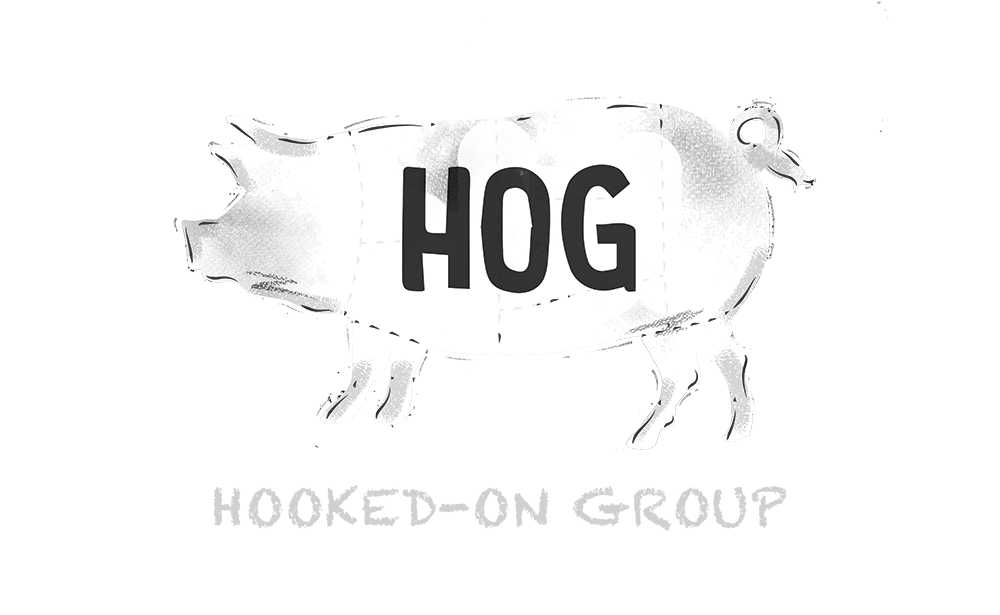Blackfriars Sustainability Policy
The Hooked-on Group’s family of restaurants are fully committed to operating in a sociably and sustainably responsible way. We source our produce as locally as possible and aim for high welfare and sustainable standards. We strive to reduce our environmental impact, always endeavour to fulfil our social responsibilities and provide healthy and sustainable food to our customers.
We recognise it is our responsibility to encourage our suppliers and contractors to minimise any negative environmental and social effects associated with the products and services they provide.
We joined the Green Tourism Business Scheme in 2007 and then went on to become a (North East founding) member of the Sustainable Restaurant Association in 2010. In line with the broad focus areas of the SRA we have looked to improve our overall sustainability not just in the food that we purchase but also our environmental impact and social engagement as well.
In 2012 we achieved the Sustainable Restaurant Association’s Three-Star Sustainability Champion Status and we are currently working towards the SRA’s new Food Made Good accreditation (see www.thesra.org).
OUR AIMS
Our aim is to continually increase our commitment to sustainability and communicate to our staff, customers and suppliers our commitment to sustainable food, minimising environmental impact and increasing social engagement.
To allow us to meet our aims we try to provide food that is nutritious and contributes to a healthy diet. We aim to raise staff, customers and supplier awareness of the environmental and social benefits effects of a sustainable diet via promotion and product information.
We aim to constantly monitor our energy and waste policies and seek to limit our environmental impact. We support the communities we engage with, including customers, employees, the local community and the institutions that support them.
We examine our Sustainable Policy annually, amend targets and communicate findings (including progress and gaps) to staff, customers and suppliers and compile annual targets in order to monitor progress. We monitor our progress in regard to three key areas: sourcing, environment and society.
SOURCING
Local & Seasonal
We change our menus at least five times per year to reflect food that is in season and continue to source as much local produce as possible – primarily within Tyne & Wear, Durham, Northumberland, North Yorkshire and Cumbria as well as Southern Scotland.
We aim to source at least 50% of our summer herb requirement from our courtyard planters. We harvest our own cherries and walnuts and have our own Staff Allotment open to all staff.
In the future we hope to grow more produce in and around the restaurants outside or inside using artificial light and aquaponic systems if required, appropriate and safe to use.
We encourage chefs and front of house staff to forage for wild garlic, wild leeks, elderflowers, blackberries, plums, rosehips, mushrooms, seaweed and other edible produce, and also make preserves, pickles and chutneys to make the most of seasonal produce and local bounty.
Our beef, pork and lamb is all locally sourced, as is our venison, most rabbits, chicken and wild/game birds whilst our fish, unless farmed, is either straight from the North Sea or direct from Scotland
Past and current favourite suppliers include: Doddington Dairy; Northumberland Cheese; Robson’s Chainbridge Honey Farm; Gilchesters Organic Flour; Local Rapeseed Oil; Carroll’s Heritage Potatoes; Heatherslaw Mill, North County Organics; Swallow Fish /Robson & Son’s Smokers; Ridley’s Fish & Game, and Sunny Hill Eggs as well as various foragers. Throughout the year we take our staff on visits to these food producers and North Shields Fish Market.
However, we can’t source everything locally and recognise the need to import wine, coffee, chocolate, vanilla and olive oil, as well as citrus and other fruit and vegetables. We also buy rabbits and other items from France if we think they’re better than their British counterparts. We only use responsibly sourced palm oil.
We try to use as much bi-product as possible including: lemon/lime zest (as well as the juice), egg whites (as well as the yolks), fruit and veg peelings to make garnishes and vinegars; over-ripe fruit and veg for chutneys; dried-up herbs for herb butter; left-over bread for breadcrumbs, treacle tarts and panzanella-style staff salads; dried rind from goats cheese logs for cheese seasoning; fish heads and bones from mackerel and other fish for fish sauce; and fish/meat trim and potato peelings. Some of these items will be used to make staff lunches.
We cater for most diets and offer both vegetarian and vegan options on all menus.
Environmentally Positive Farming
As well as various supplier visits, we also aim to take our staff on visits to ecological farms; source some of our produce from an ecologically certified producer (e.g., Soil Association, LEAF Marque, Rainforest Alliance) and deal directly with farmers or primary producers.
We also source organic, natural and biodynamic wine, beer, cider and rare-breeds varieties.
We hope to take part in Community Supported Agriculture (CSA) or similar schemes and use an SRA-approved sustainability agreement with some of our suppliers.
Ethical Meat & Dairy
Most of the eggs and meat used at our restaurants is free range or RSPCA Freedom Food certified. The milk we use is organic.
Sustainable Fish
Most of the fish we serve is either straight from the North Sea or from Scotland. We avoid tuna and other exotic fish and change our fish options to avoid spawning seasons. We take our staff to the fish market at North Shields and actively engage them in seafood sustainability.
We aim to source all of our fish from known sustainable sources using information supplied by the Marine Conservation Society. In the future we hope to obtain MSC Chain of Custody Certification and write and implement a Sustainable Fish Sourcing Policy.
Fairtrade
We only serve Fairtrade tea, sugar and coffee.
ENVIRONMENT
Supply Chain
We have systems for packaging take-back and reuse with at least 50% of our drink, fish, meat, and fruit and veg suppliers. We help our suppliers make their deliveries more sustainable by ensuring they only deliver to us once a day and encouraging use of ‘green’ transport. We avoid air-freighted goods in preference to those imported by ship or rail. Company cars are all electric. In 2022 we purchased a refrigerated electric van to transport fish bought off North Shields Fish Market as well as fruit and veg.
Energy Efficiency
We have always understood our energy usage, by regularly and accurately measuring our consumption with the aim of reducing our energy consumption. We audit our lighting and have swopped to low-energy bulbs and LED’s where possible as well as adopting a stricter ‘switch the light/hob/appliance off’ policy. We run a staff training session on energy efficiency and staff practices to reduce energy consumption.
We use renewable/green energy tariff where possible; fit electricity or gas submeters to monitor kitchen energy use and set targets for reduction; develop a Climate Change Strategy and accurately measure and reduce our carbon footprint.
In 2023 the Council plan to replace our gas boiler with air-source heat pumps, install double-glazing and better insulation.
Water Saving
We avoid selling bottled mineral water in preference to our tap water filtration system used for our chilled still and sparkling water. We constantly review water use in an effort to reducing water consumption and have written and implemented a Water Saving Policy and conduct staff training on efficient water use practices.
Waste Management
We don’t use plastic single-use straws, cutlery or stirrers. Glass, plastics, paper and cardboard are all separated out for recycling collection. We separate our food waste for either composting or anaerobic digestion. We have used an in-house Jura Composters and Scotty Hot Boxes in the past with the resulting compost being used in our half barrels used to grow herbs for the restaurant. We hope to compost more onsite in the future. Most of our packaging is collected by its respective supplier.
We have developed a Waste Reduction Policy and train staff on waste reduction practices; and encourage customers to take away their unfinished meals.
We constantly assess our disposable catering items and reduce purchasing disposable items.
Workplace Resources
We have a commitment to buying recycled or FSC certified paper and paper products. All print material uses recycled paper stock. We use environmentally friendly cleaning products which arrive as very high concentrates to minimise transport costs and eliminates the use of single use plastic.
In future we plan to recycle ink cartridges, reduce paper-based products, source sustainable materials (e.g. FSC certified wooden furniture) and use environmentally friendly products.
SOCIETY
Healthy Eating
We accommodate food allergies and offer and promote our vegetarian and vegan options.
Community Engagement
We support Streetsmart which raises thousands of pounds for homeless charities as well as Restaurants Against Hunger which was launched in 1998 by Action Against Hunger.
ADOPT-A-SCHOOL
Adopt-a-school is run by the Academy of Culinary Arts which aims to get food, food provenance, cooking and nutrition back on the school agenda. Over the years we have adopted several schools in the region including Our Lady & St Annes RC, Westerhope Primary School, Harlow Green Juniors and South Gosforth First School. Our chefs run workshops with the children teaching them basic cooking skills, where food comes from, how to shop and how to use their taste-buds. We also take part in the ‘Let’s get Cooking’ scheme which promotes healthy eating in schools.
CHARITY
We have actively helped and supported a number of Charities over the years including the RNLI and Percy Hedley Foundation as well as:
St Oswald’s Hospice for which over £1,000 was raised in 2009
Evening Chronicle Sunshine Fund for which over £1,200 was raised in 2010
Sir Bobby Robson Foundation for which over £700 was raised in 2011
Marie Curie for which £1,000 was raised in 2012
Since 2013 we have actively supported and raised funds for Fareshare North East, a franchisee of Fareshare UK and a subsidiary of Changing Lives. One of our directors sits on the Board of Fareshare North East for whom we provide support and accommodation, and raise money through initiatives such as our annual Fareshare Banquet which raised £1,000 in 2013 and £4,000 in 2016 and £3,000 in 2022.
Group Operations Manager Ruth Terrington has raised over £10,000 for charitable causes.
In 2022 The Hooked-on Group raised over £30,000 for UNICEF’s Ukraine Appeal (https://www.justgiving.com/fundraising/blackfriars-restaurant)
We consider all charitable causes especially those closer to home and involving children.
Treating Staff Fairly
The staff are provided with one healthy meal per day. Our tipping policy is clear, transparent and understood by staff and customers. 100% of our tips go to the staff who agree how it’s distributed. The Company pays for the credit card commission and accountancy costs.
We participate in the Cycle to Work Scheme, offer staff pensions and staff development training and mentoring. We encourage staff feedback to affect positive staff conditions.
Responsible Marketing
We raise customer awareness about our approach to sustainability through our website, our e-newsletters and general printed material, and include a system for customer feedback through our business reply cards.
We publicise sustainable transport options so diners can reach our restaurant through public transport, walking and cycling. We try to educate our customers on sustainability issues through our Food Producers Map.






